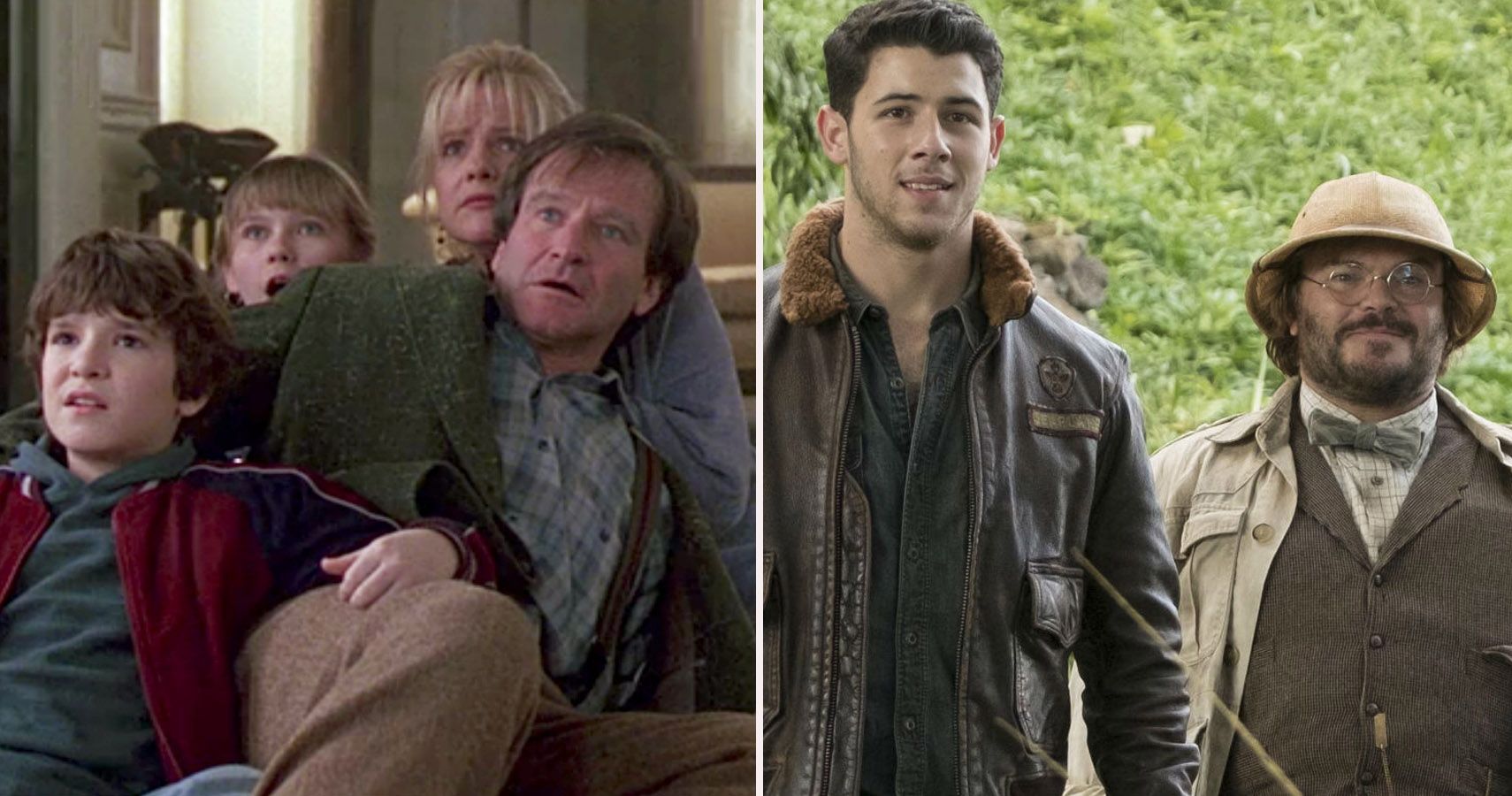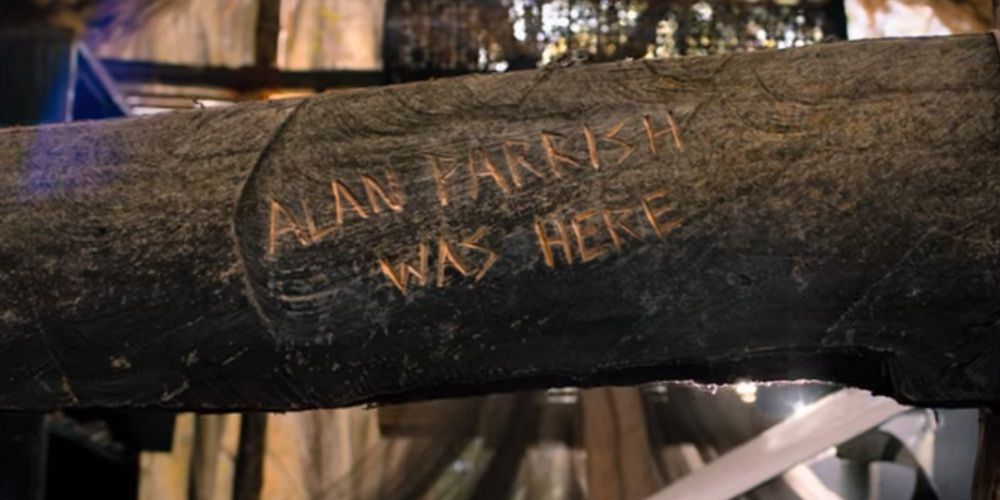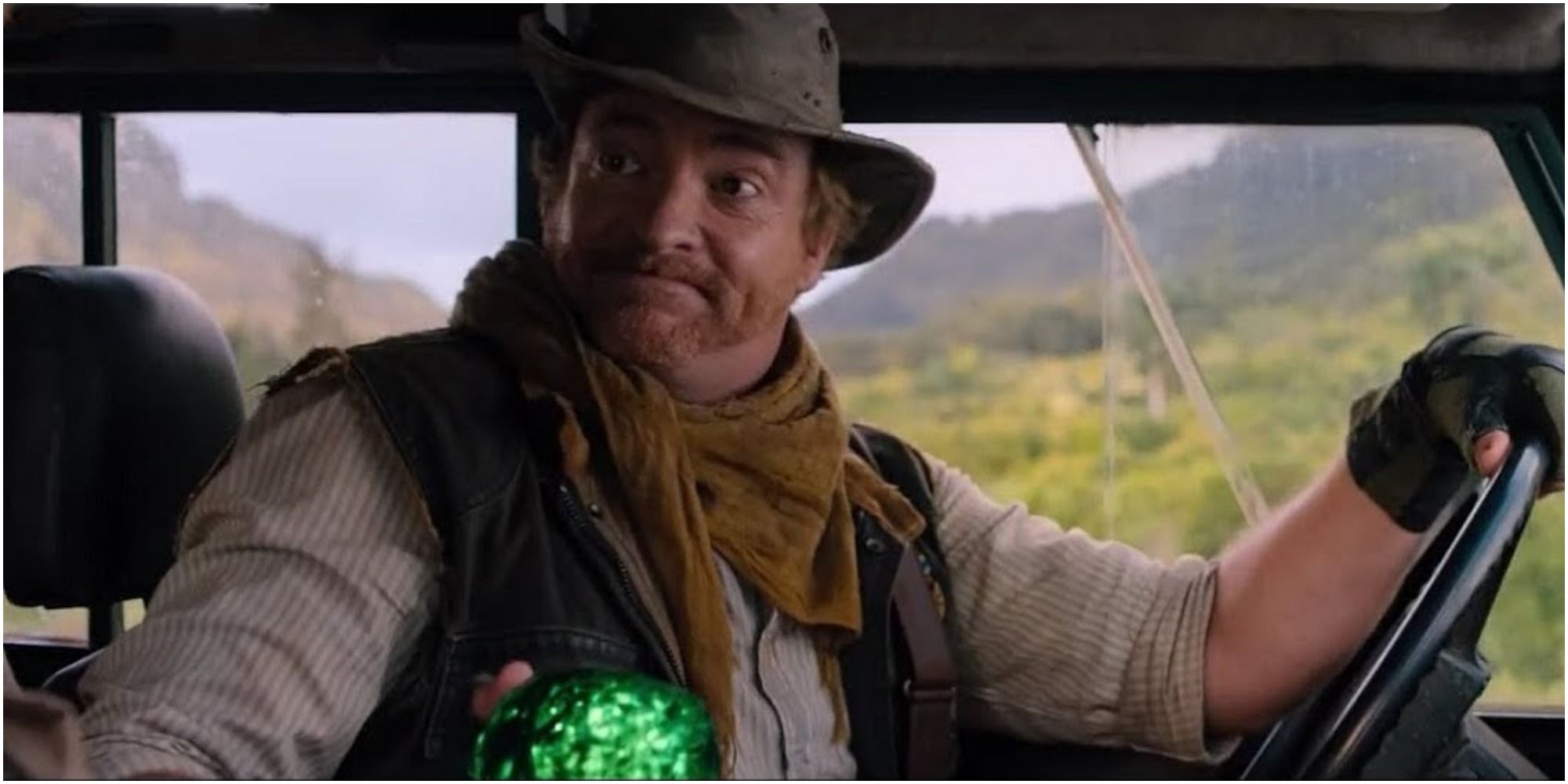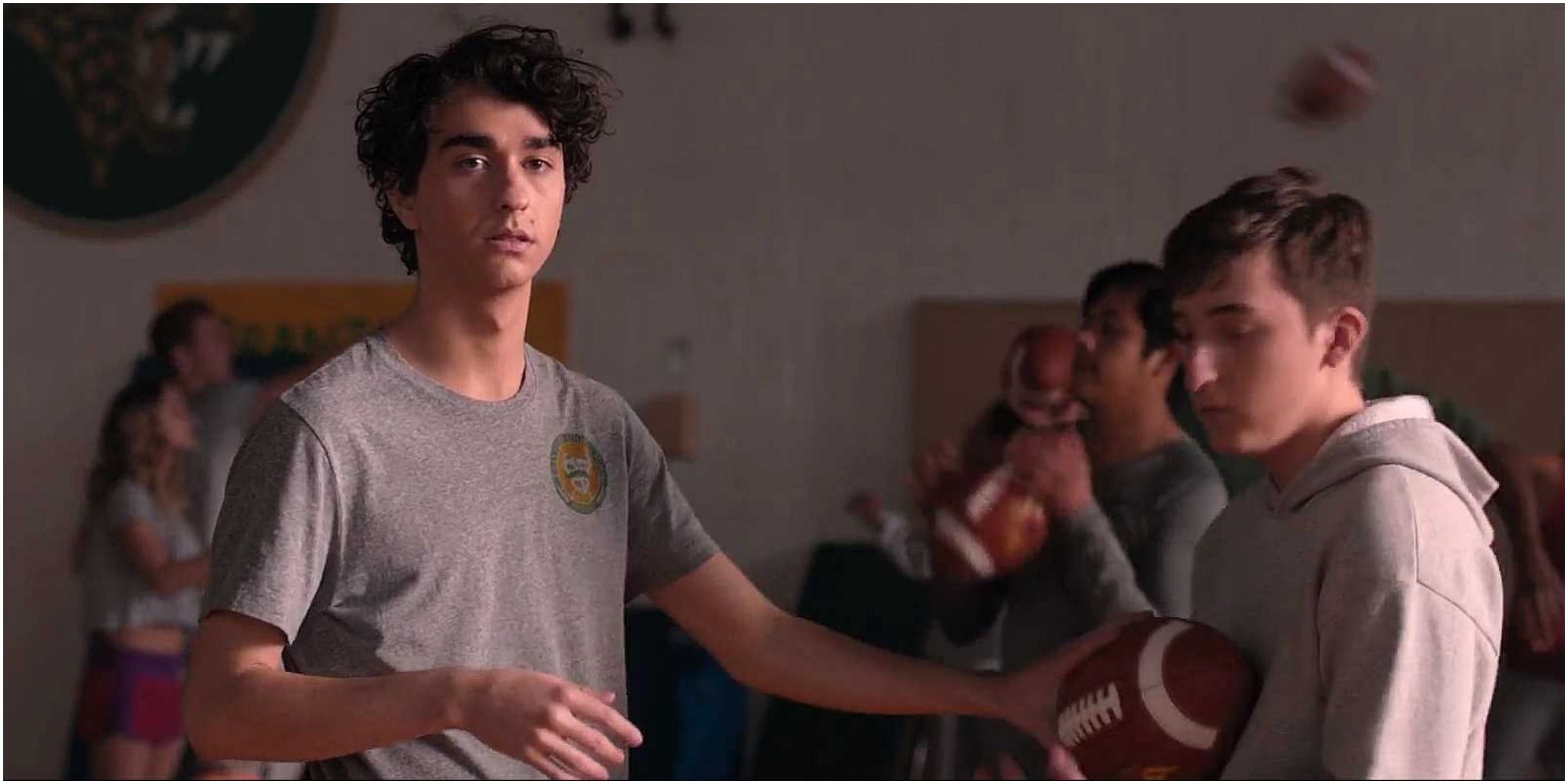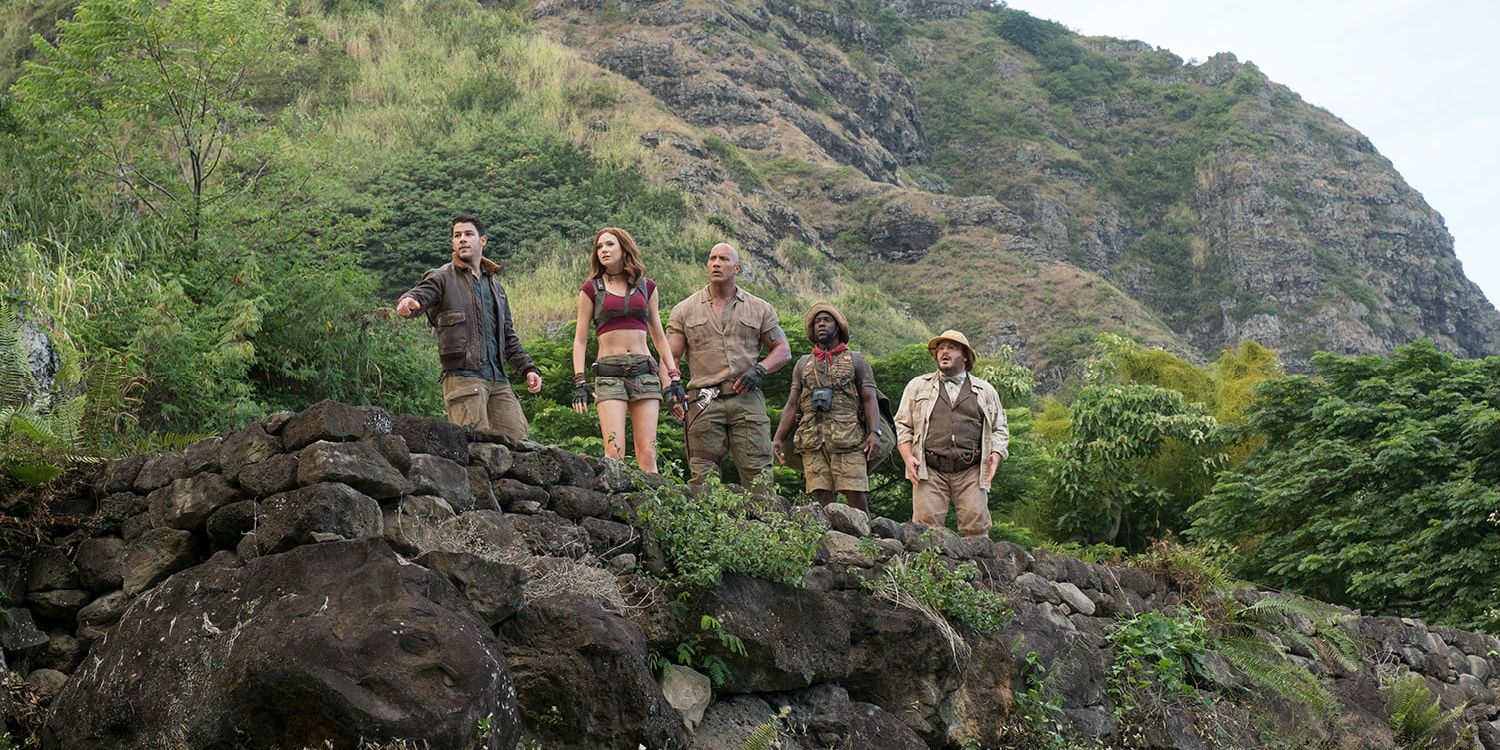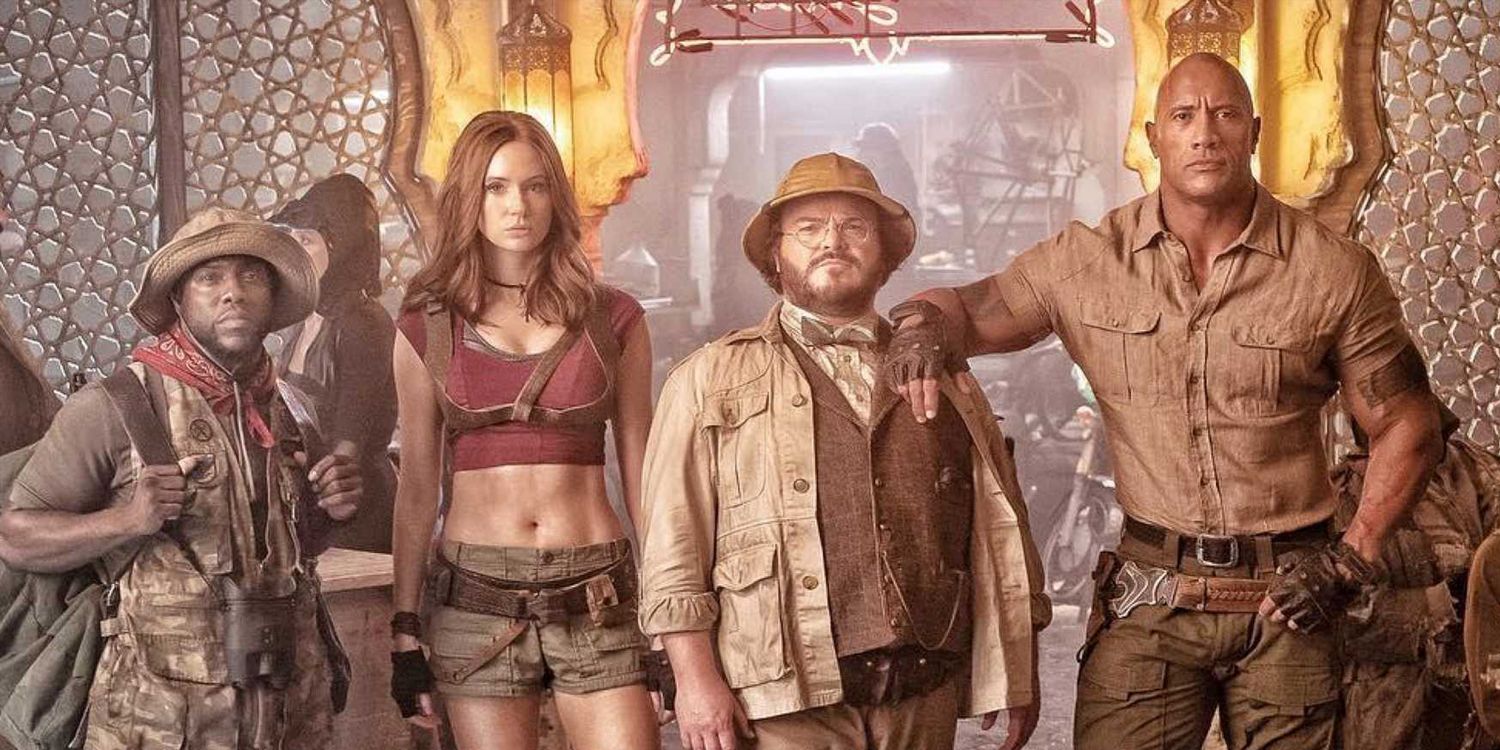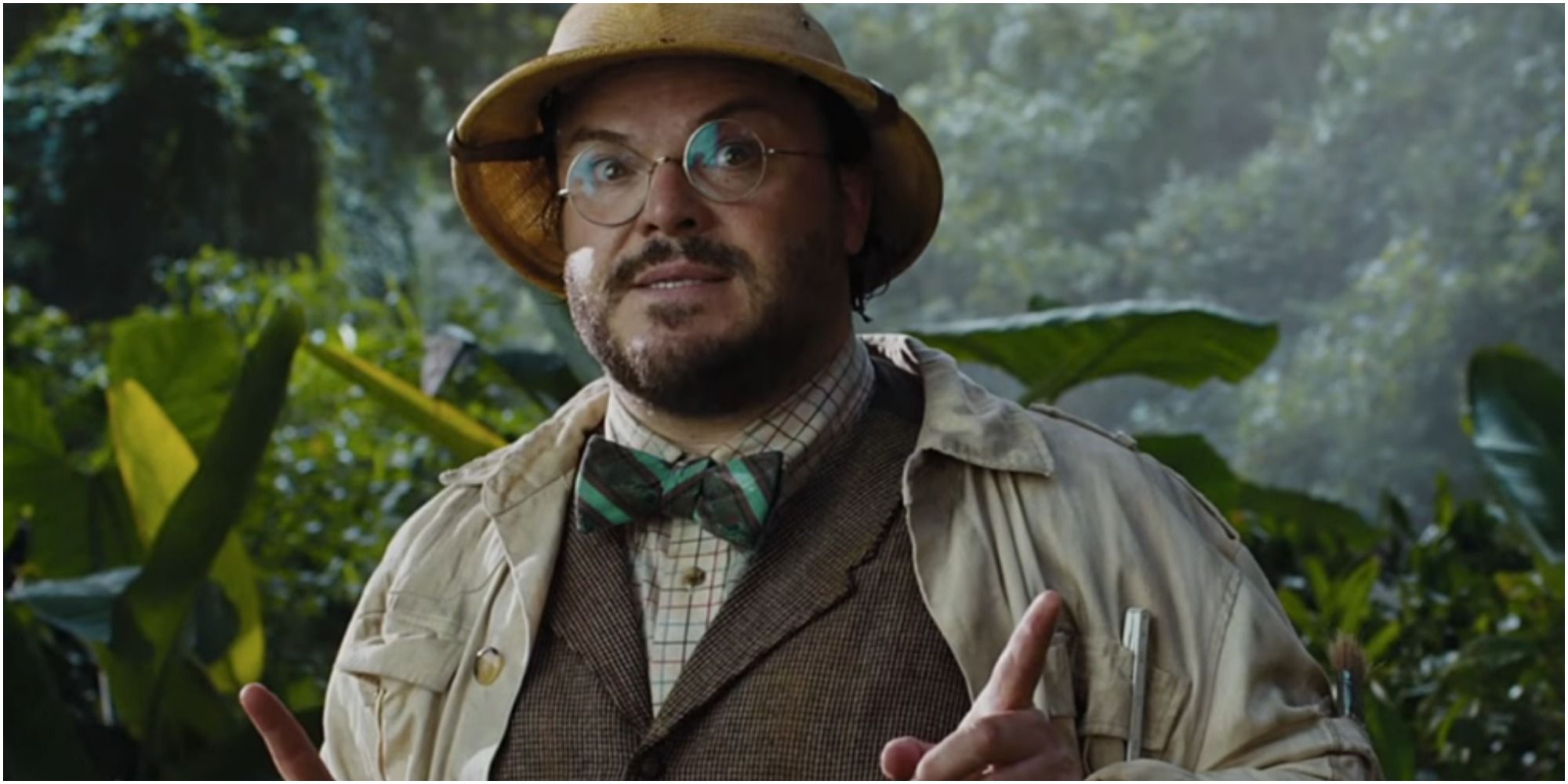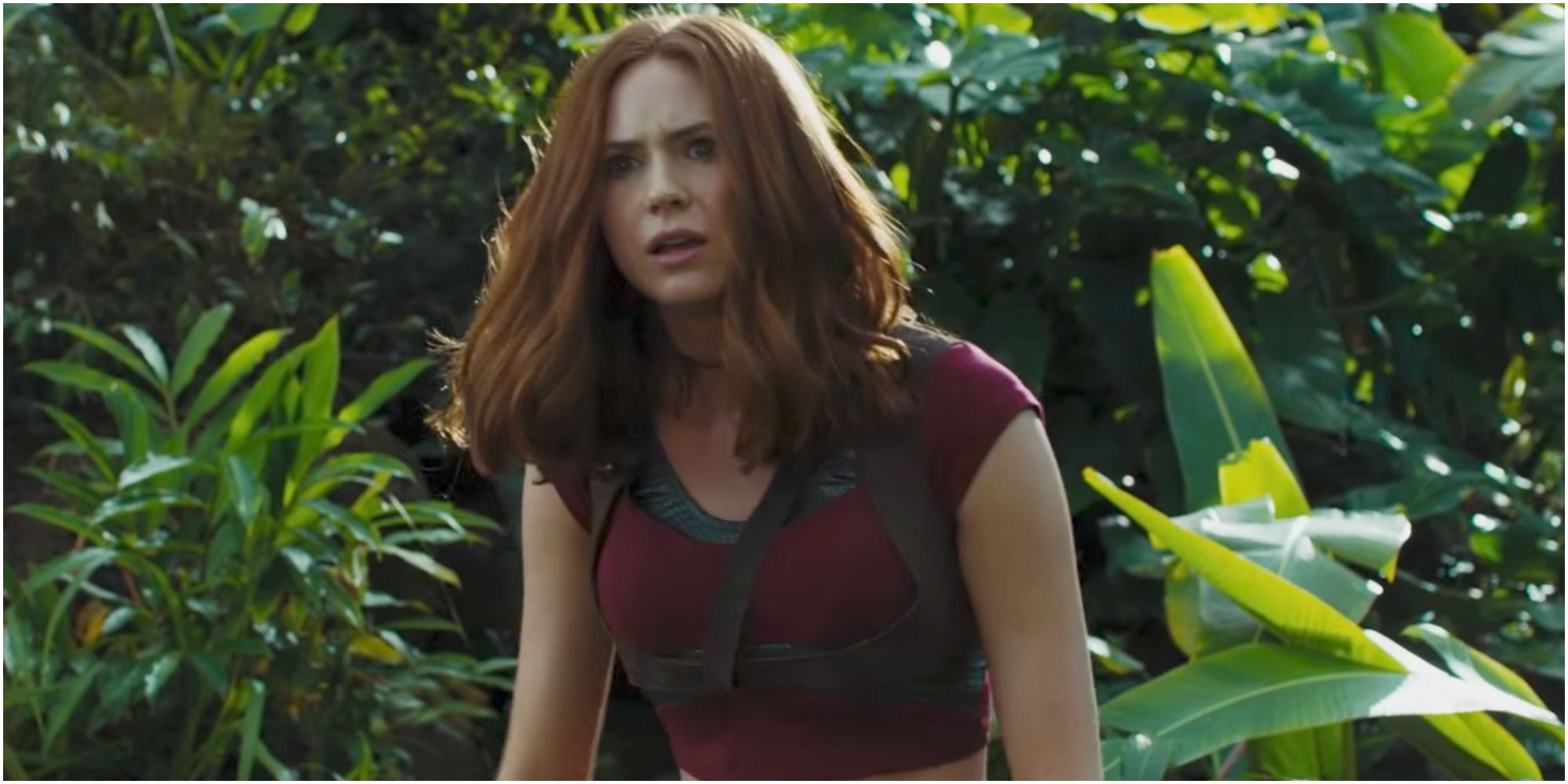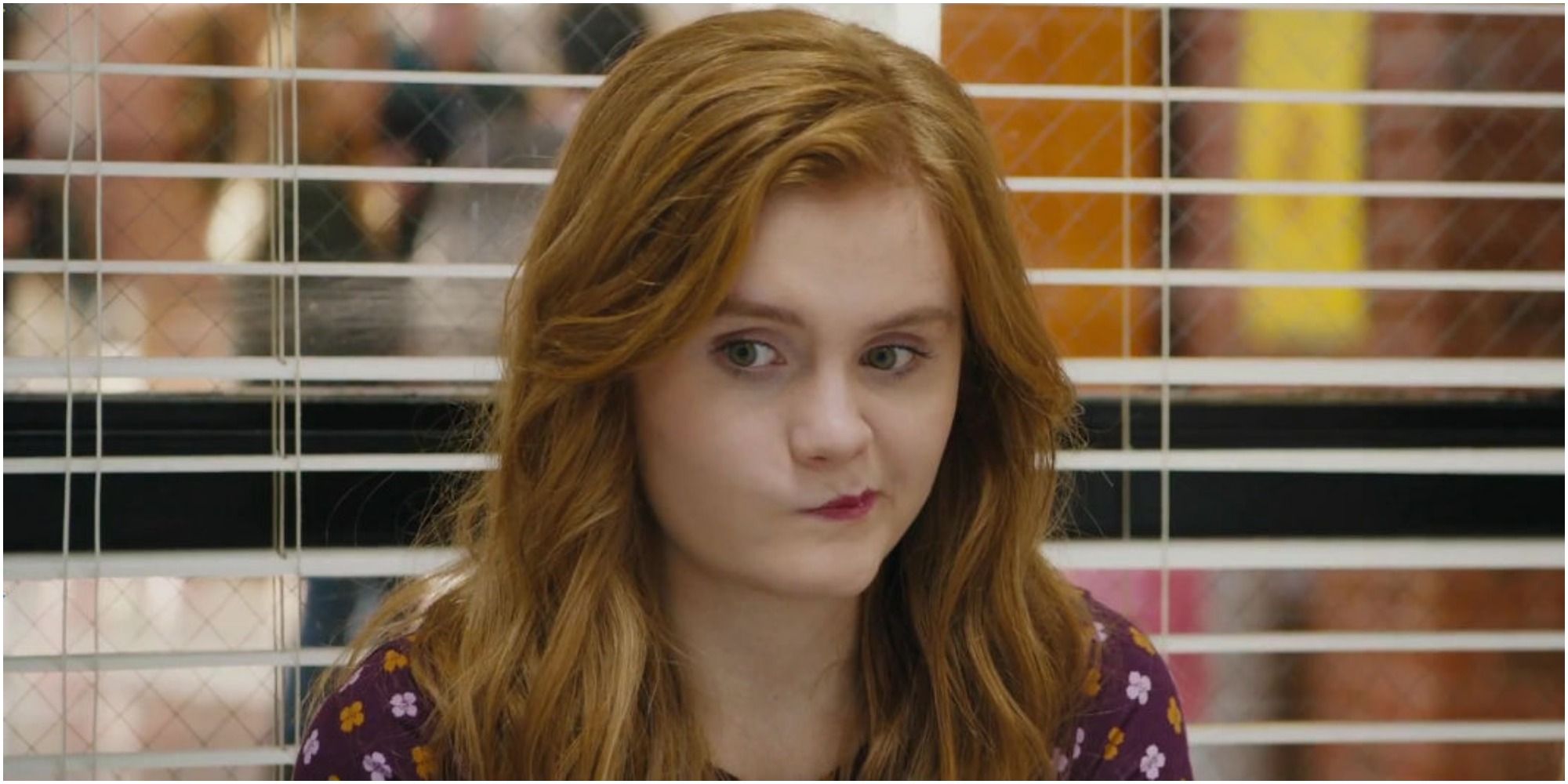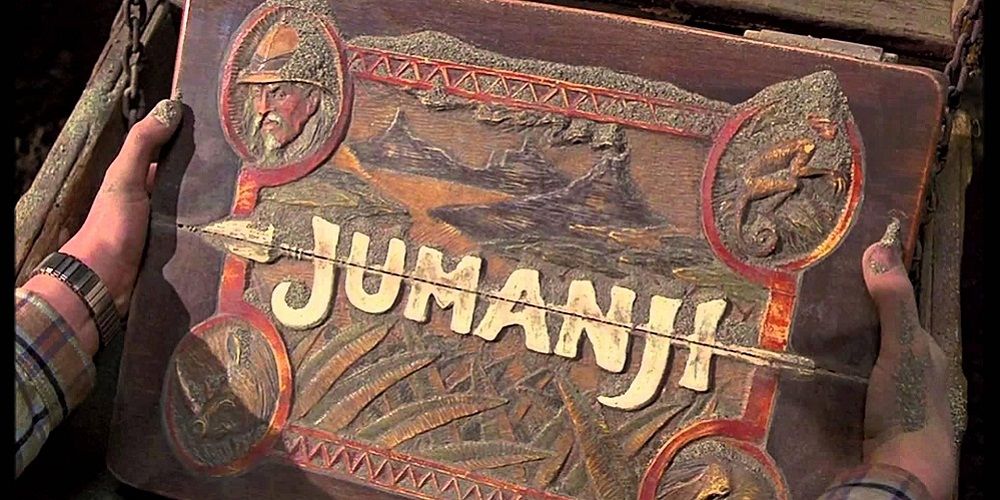It's no easy task to follow up a Robin Williams movie, nevermind one of his most classic and beloved, like Jumanji. And yet, in 2017, Columbia Pictures tried to do just that. Jumanji: Welcome To The Jungle might have been met with great skepticism by fans of the classic, but anyone who presses play will find that they had little to fear.
The film's success lies in the fact that doesn't try to replace or out-do Jumanji. Rather, it is a work that creates its own fun, light-hearted story, while paying tribute to those hallowed bones of many viewer's childhood favorite film.
Tastefully References Alan
The film does well by not being too heavy-handed when it comes to the plot points of the original. However, this allows for the direct reference to the original character, Alan, to stand out meaningfully.
The moment where it's revealed the fort the group is taking shelter in was, in fact, the residence of Alan Parrish during the 20 years he spent in the jungle, is done with subtlety and respect and is a nice nod to both the original film and to Robin Williams.
Keeps It Family Friendly
Something the films both have in common is that they both appeal to a wide range of viewers. The average viewer could likely watch the film with their family, with the more mature references being silly and subtle enough for a teen to watch with their grandmother, or a parent to watch with their child.
Resolves Childhood Feuds
One of the main themes of the original is the challenge of facing one's fears, originally embodied through clashes with schoolmates and ultimately worked out through the challenges of the game.
This happens with young Alan and his town bully, as well as Alan and his father in the original movie, and is similarly echoed in the relationship between Sam and Fridge in the 2017 film. Both characters learn to find strength by facing their fears and gaining trust in themselves.
Builds Upon Original Aesthetic
The original has two main aesthetics: sleepy small town and the jungle. Welcome To The Jungle stays true to this, but takes it a little further. By changing the format of the game, the film could also have, hypothetically, also changed the setting.
Many follow-up films and reboots attempt to take the approach of trying to go bigger and better, but this can go too far. In this case, the film keeps the setting of the small town and updates it to a more recent time period. The film also keeps the jungle aspect, but instead of bringing the jungle to the characters, the characters go to the jungle -- an exciting twist that still honors Jumanji.
Emphasizes Teamwork
One of the most important lessons that Jumanji imparts is the importance of working together. The game requires that each player continue rolling the dice in order to advance the entire game forward. If these rules aren't followed, it puts everyone's life at stake.
In this way, the game literally can't be completed without cooperation, thus forcing the participants to help one another or fail. This is the perfect formula for an "unlikely friendships" plot and works perfectly in both films.
Champions Comedic Relief
As soon as one begins the movie, it's clear that the tones are quite similar to the original. Nothing is too heavy or serious, even in the direst of circumstances. The plot could easily allow for high tensions and turmoil, and there certainly is conflict, but the film never elevates this to a point of stress for the viewer.
There is always a sense that everything is going to be okay, allowing the viewer to be at ease and enjoy the adventure and antics. Without some hilarious moments, after all, it simply wouldn't be doing Jumanji justice.
Features Powerful Female Leads
The 1995 film offered Sara and Judy as scrappy female leads on par with that of the boys, something not extremely common for the time. The 2017 film also presents two female leads, Martha and Bethany -- or, as they are known in the jungle, Ruby Roundhouse and Professor Oberon.
The pair is each tough in their own way, and even with Ruby's sexualized outfit, something that the character herself makes an unimpressed comment on, the movie does a decent job of highlighting complex female characters.
Empowers Misfits
Jumanji loves misfits. Alan Parrish was a boy who didn't fit in, and so were Peter and Wendy. The leads of Welcome To The Jungle are also each a misfit in their own way, even if some of them technically fit in at school. The original had a way of highlighting people's quirks and using them as a unifier, and the new film does the same.
Upgrades The Game While Keeping The Aim
One of the biggest changes that the film makes to the original happens within the first few minutes and takes a moment to adapt to. Fans may be unsure of how to feel about the classic board game, the very center of the movie, being transformed into an entirely new medium.
However, the change occurs without sacrificing the ultimate aim of the game, which is to fight the jungle and make it to the end or else live trapped in the jungle forever.
Prioritizes Family
The original film placed great emphasis on the importance of family, whatever that family may be made of. Each character in each movie has a family of their own, but by the end of the film, they have experienced a chosen family that meant just as much, if not more, than the one they were born into.

